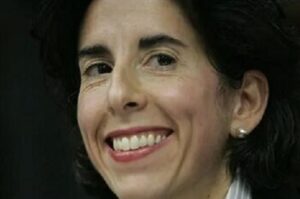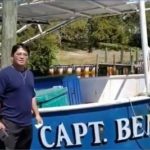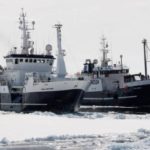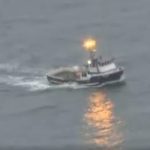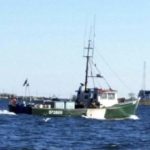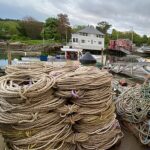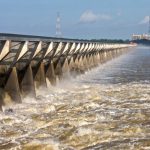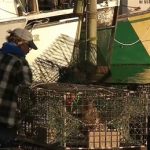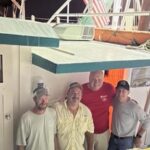Daily Archives: June 1, 2018
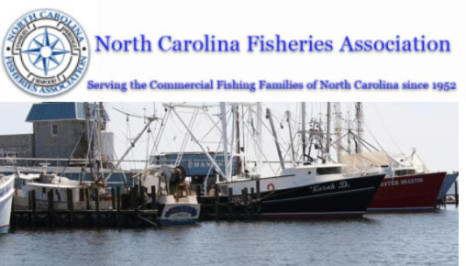
North Carolina Fisheries Association Weekly Update for June 1, 2018
>Click here to read the Weekly Update<, to read all the updates >Click here<, for older updates listed as NCFA <click here>19:55
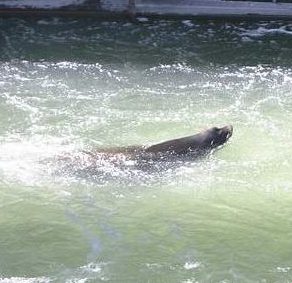
Sea lions continue to eat endangered fish
All the time, money and sacrifice to improve salmon and steelhead passage in the Willamette River won’t mean a thing unless wildlife managers can get rid of sea lions feasting on the fish at Willamette Falls. That was the message Tuesday from Shaun Clements, senior policy adviser for the Oregon Department of Fish and Wildlife, who met at the falls with Liz Hamilton, executive director of the Northwest Sportfishing Industry Association, and Suzanne Kunse, district director for U.S. Rep. Kurt Schrader, D-Ore. >click to read<17:51
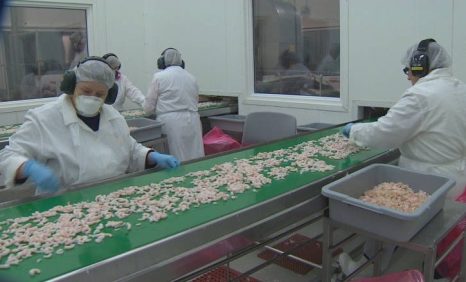
Disappearance of Daley Bros. another harbinger of bigger crisis facing N.L. fishery
April 20 was a difficult Friday for dozens of people working with Daley Brothers Ltd. in New Harbour. Their hopes of returning to work at the two seafood processing plants in the Trinity Bay community were abruptly dashed, after word spread that the company would not be reopening.,, Owner Terry Daley has refused interview requests, and has even rebuffed questions from Fisheries Minister Gerry Byrne, who’s trying to figure out if the closure is permanent, so he can activate government assistance for the displaced workers.,,, Another prominent company name in the industry is likely gone for good, much like P. Janes & Sons, Breakwater Seafoods and others. >click to read< 16:34
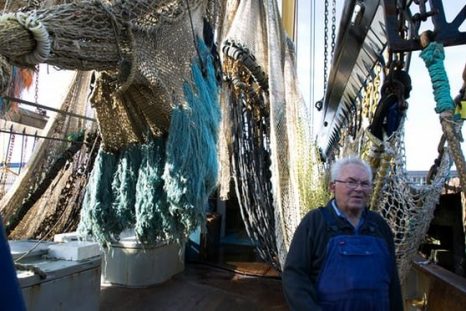
Dutch fishermen to sail fleet into Amsterdam in wind turbine protest
The Netherlands may be the land of the windmill, but fishermen are planning a major protest on Saturday against the Dutch government’s latest wind turbine construction in the North Sea, with an armada of fishing boats sailing into Amsterdam. After alighting from at least 15 boats at the back of Amsterdam’s central station, it is understood that hundreds of fishermen will march to the capital’s Damrak canal, where they will upend bags of small fish deemed too small for sale by the EU, and cover them with red dye. Fishing community leaders say they are being crowded out of their waters and that the towering turbines damage fish stocks and deafen and displace the local porpoise populations. >click to read<13:33
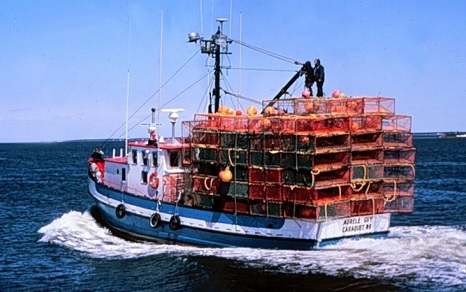
Making a killing – As whales die in frightening numbers, New Brunswick’s lucrative snow crab industry struggles under a global spotlight.
It all started when Charles Anastasia’s boat sank. This was in 1979, when 26-year-old Anastasia took to the ocean every morning to fill his nets with cod, back when that fish was still the beating heart of the Atlantic fishery. With his boat pinned 100 kilometres offshore during a “perfect storm,” a floating telephone pole skewered the hull like a marshmallow on a stick. The eight-man crew barely got a mayday out and survival suits on before the vessel sank beneath the 20-metre waves.,,, Soon after, the broad-shouldered, wide-cheeked man uprooted his life and moved to Alaska, buying and selling seafood for a living. It was here he encountered snow crab: a flat-bodied, 10-legged crustacean that transformed his life and would soon, on the other side of the continent, revolutionize an industry. >click to read<

Lawmaker Apologizes To New England For Cuomo Making Its Energy More Expensive
Republican Sen. Robert Ortt of New York criticized the state’s Democratic Gov. Andrew Cuomo Wednesday for unambiguously opposing natural gas production while citizens contend with rolling blackouts and expensive energy prices. Ortt apologized to New England in a lengthy editorial for the Democratic governor’s antagonistic approach to energy production. The Republican state senator also accused Cuomo of twisting New York laws to the point of barring any form of inexpensive energy from entering the region. Cuomo is not the only official in the New England area who is opposed to natural gas. >click to read<11:10

Woody Point fish plant and owner acquitted of illegal fishing
In a directed verdict released on Wednesday, Todd Young and 3Ts Ltd. were acquitted of fishing for Atlantic halibut without a licence. Young is part owner of the 3Ts fish plant, which is based in Woody Point. The case was heard by Judge Wayne Gorman in provincial court in Corner Brook on May 18 and 28. At the conclusion of the Crown’s case, counsel for Young and 3Ts applied for a directed verdict. The request meant Gorman had to determine whether the evidence, if believed, could reasonably support the inference of guilt the Crown had sought to draw. In his written decision, Gorman said he concluded it did not and the application should be granted, and he acquitted both accused of the charge against them. >click to read<10:23

Coast Guard rescues 3 after fishing vessel sinks off Myrtle Beach
Coast Guard crews rescued three fishermen Friday after their fishing vessel sank 45 miles east of Myrtle Beach. The fishermen reported their 33-foot fishing vessel, Aunt T, was sinking and had to abandon ship into their life raft.Coast Guard Sector Charleston Command Center watchstanders were notified by an emergency position indicating radio beacon activation and later connected via satellite phone with one of the fishermen stating the situation at 12 a.m. A Coast Guard Air Station Savannah MH-65 Dolphin helicopter crew launched and hoisted the fisherman from their life raft at approximately 1:19 a.m. They were taken to Myrtle Beach International Airport where EMS was waiting. >click to read<08:45
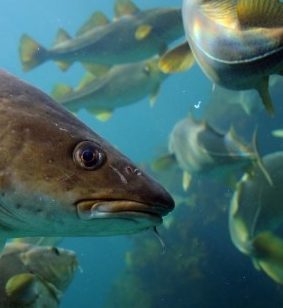
For the Love of Cod – the fight over fish stocks may well spell the end of cod fishers—or cod
A hard exhale escapes Sherrylynn Rowe before she can help herself. “It was so disappointing,” she says. A Canadian federal government report, released in March 2018, showed that the number of northern cod of spawning age in the Canadian North Atlantic was down 30 percent from just last year. It was a devastating turn. Northern cod had been fished to near extinction in the early 1990s and it had started to look like they were finally beginning to rebound. But now the population—which had been expected to increase again this year—was shrinking fast, brought on by an unexpectedly high rate of natural deaths. >click to read<07:53

































